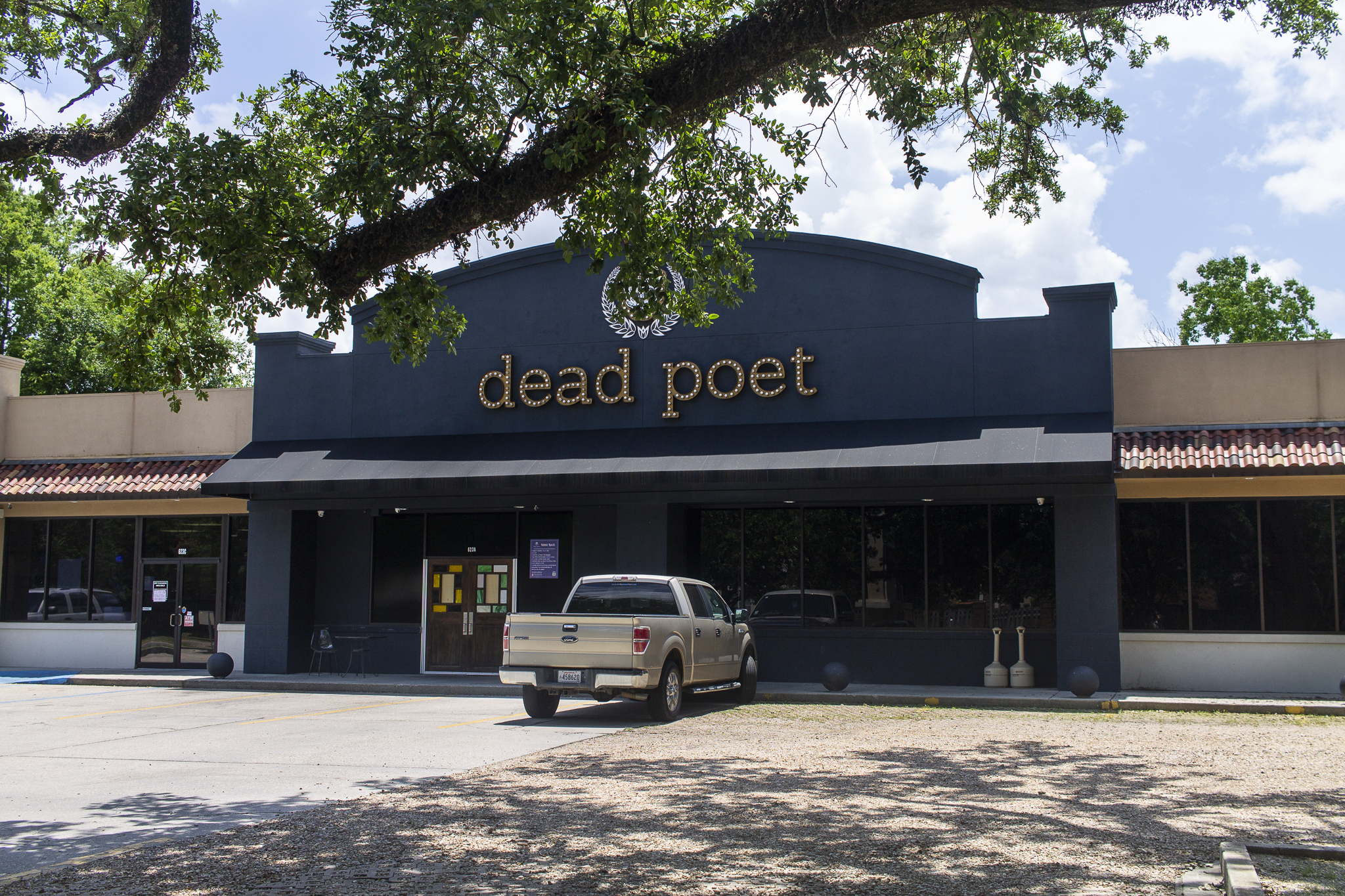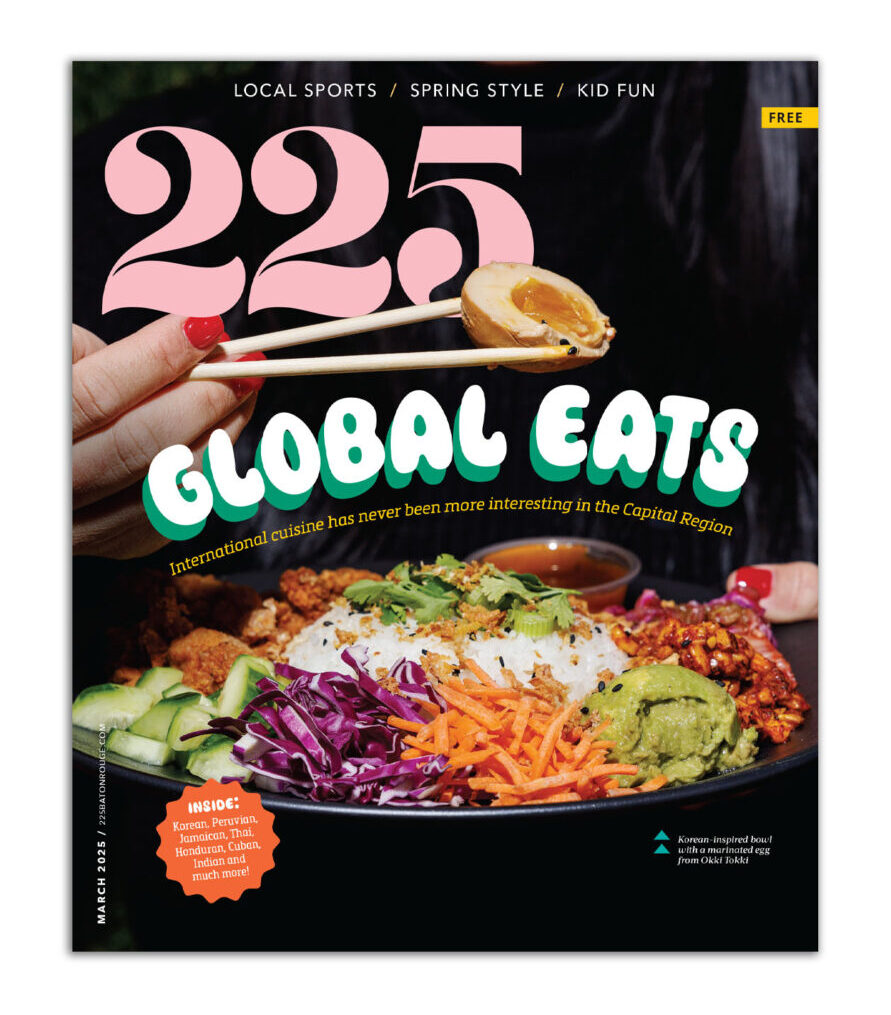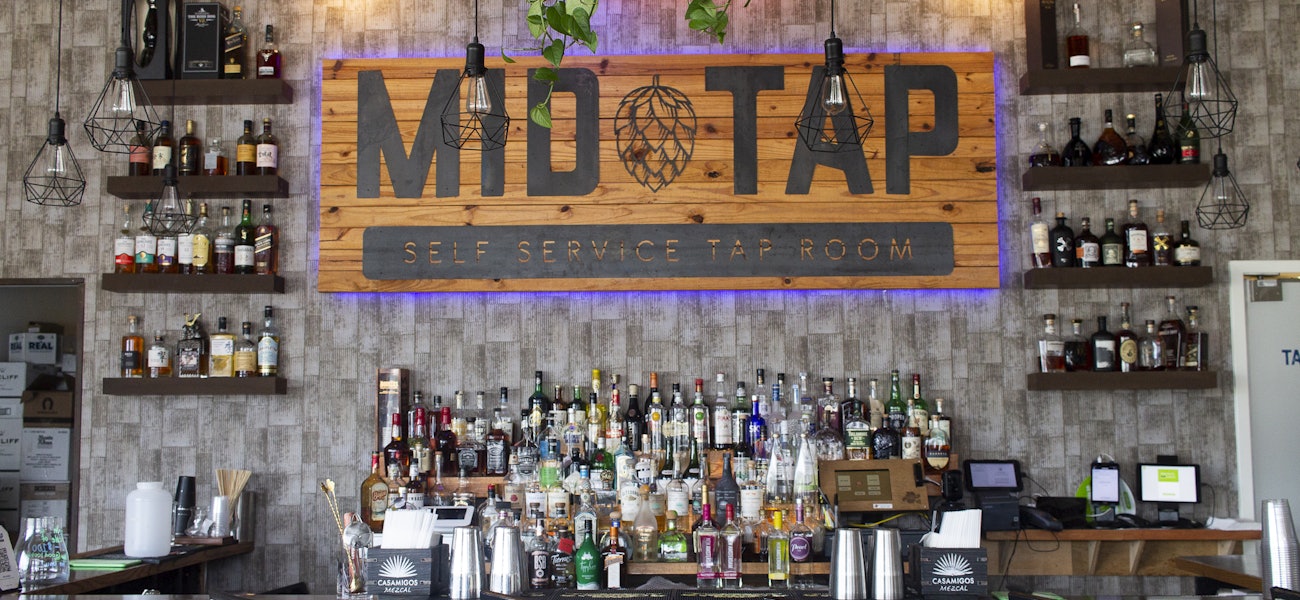The line distinguishing full-service restaurants from bars that happen to serve food is becoming hazier. Baton Rouge-area bars and taprooms continue to expand their menu options, a trend that began shortly after the pandemic forced bar closures and capacity limits.
Dead Poet owner David Facey opened a kitchen in his cocktail lounge after Gov. John Bel Edwards mandated statewide bar closures near the end of 2020.
“We never served food before,” Facey says. “It was a direct response to them closing down bars in December after allowing us to reopen.”
|
|
|
Dead Poet utilized the kitchen space in the adjacent suite to launch the bar’s first menu, which included wings, burgers, fried seafood and various shareable plates. Now, the menu is limited to their most popular item—wings—and a handful of seafood options.
“We started off a little too broad, in my opinion,” Facey says. “We realized that even though you’re a bar and you sell food, you’re still a bar first, and not a restaurant. Over time, we changed the menu and have gotten a lot more narrow.”

Mid Tap owner Rick Patel also says the menu underwent several changes after the business was reclassified as a restaurant mid-pandemic. The menu began with a modest 10-12 food items with a focus on the self-serve taps of beer and other drinks, but it’s now expanded to offer around 50-60 dishes, including weekend brunch options.
“We tried brunch two other times prior to that,” Patel says. “The first time we rolled the menu out, it was premature. It wasn’t that good. … The second time we rolled it out, we had a few good options, but the operational execution of getting the marketing standpoint correct wasn’t there.”
For the third and most recent brunch rollout, Patel and his wife and co-owner, Needhi Patel, took their time crafting the perfect menu, which includes traditional brunch items such as steak, eggs and potatoes, breakfast tacos and chicken and waffles, along with some Indian-inspired dishes and $14 bottomless mimosas.
Most of the planning was done when they both caught COVID-19 last summer and spent three weeks in quarantine. The changes have paid off, though. Most weekends, it’s hard to find seating during the restaurant’s 11 a.m. to 3 p.m. brunch hours.
As for Dead Poet, Facey is considering long-term plans for the kitchen space, which could potentially transform into a separate, full-fledged restaurant or a cooking facility for delivery-only meals. Regardless, food will remain a fixture at Dead Poet in some capacity.
|
|
|
“We’ve had nights where our kitchen wasn’t open, and our numbers declined,” Facey says. “A lot of customers, in my opinion, got used to having food always being an option when they went to get drinks.”
Facey says the main challenge of this trend, besides the added cost of operating a kitchen, is managing guests’ expectations.
“When you have food, people don’t expect you to be a bar—they expect you to be a restaurant,” Facey says. “That’s not our selling proposition or core competency. That’s not us … (But) I do not believe we’re getting rid of it. I think it’s a consequence of COVID, and it’s here to stay.”





